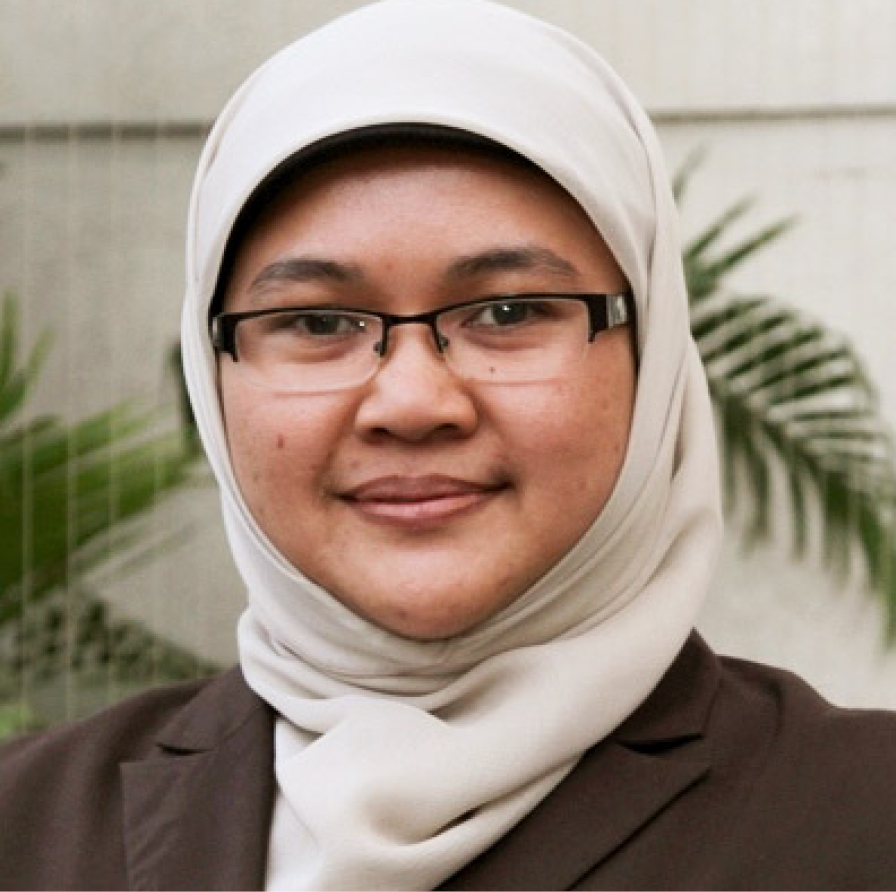Lessons from informal financial systems: Indonesian perspective
by Ghiyazuddin Mohammad and Rahmi Yunaningsih
Dec 1, 2014
7 min
This blog focuses on the role of informal institutions in providing financial services to the members of the community and concludes the opportunities these present for formal financial service providers.
Over the past few years, MicroSave has conducted several research studies in Indonesia[1] to understand the household level financial ecosystem. Through focus group discussions (FGDs) and participatory rapid appraisal (PRA) tools, we gained insights on access to, and use of, financial products in communities across Indonesia.
This blog focuses on the role of informal institutions in providing financial services to the members of the community and concludes by highlighting the opportunities these present for formal financial service providers. The following are some of the financial products/services we observed in the field.
Savings
Savings with Arisan/RoSCA
Arisans are very commonly used in all communities across the country. As with most of the ROSCAs (rotating savings and credit associations) that are so common in other parts of the world, members contribute a fixed amount on a periodic basis. The arisan group meetings (typically weekly or monthly) are held at a time and location convenient for the members. The meetings also provide a platform for members to socialize and bond with family, friends, and neighbors. The amount collected at the meeting is given to one member at the end of the meeting based on a lottery. In Indonesia, the administrators – an agent or a local institution – usually charge 5-10% of the collected amount.
Example: In a group of 30, each member contributes IDR100,000 (US$8.5) per week for 15 weeks. Each week, a lottery is held and one member receives the total amount collected, net of the administrator’s fee of IDR100,000 (US$8.5). Thus, the lottery winner leaves the meeting with IDR1,400,000 (US$ 115).
| Pyoh scheme
Pyoh is an advanced version of ROSCA prevalent in the coastal regions of West Java. The scheme allows members to access a given month’s contribution by bidding for a discounted amount of the total pool of money available. It is largely offered/managed by members of the ethnic Chinese community who are perceived to be trustworthy and reliable in managing bigger amounts of money. As Ibu Ayoh, a Pyoh member says – “Chinese are good at managing money and they never default”. Ibu Ayoh, along with 40 others, contributes IDR1,000,000 (US$83) on a monthly basis for 40 months in the Pyoh scheme. At the end of the tenure, she is entitled to receive IDR40,000,000 (US$3,290). However, after 20 months, she needed cash for her business and decided to bid for that month’s contribution. Ibu Ayoh won the bid for IDR35,000,000 (US$2,880) a discount of IDR5,000,000 (US$410). This money (IDR 5,000,000) was equally distributed among the members at the end of the meeting. |
Package saving schemes
Offered by individual agents or/and local grocery stores, this product is popular among women. Members use these schemes to “save-up” enough funds for large events such as Eid-el-Fitr and family functions. At the end of the savings period, members receive grocery packages such as rice, syrup, sugar, cookies, flour, meat etc. Agents charge anywhere between 5-7% of the amount collected from the members. They also make a good margin on the grocery packages. The product really adds value because Eid is the biggest event of the year where family members/friends meet, celebrate and exchange gifts, which requires large-scale expenditure on groceries. So members prepare for the expenditure by savings as little as IDR 3,000 (US$0.25 – to put things in perspective a pack of cigarette costsUS$1 – 1.5!) on a daily basis. Further, enrolment is easy and collections are typically made at the saver’s doorstep – either at home or at their place of work.
Cash savings with individual agents
Under this scheme, members save periodically (daily, weekly or monthly) to build up a lump-sum amount. But members receive cash instead of a gift package upon redemption. Savings range from as low as IDR3,000(US$0.25) to as high as IDR100,000 (US$8.5) per installment. Agents do not provide interest on the savings collected. Indeed they charge an administration fee of 5-10% on the total amount collected. This fee increases if a member wants to withdraw funds before the scheduled date of redemption. Agents visit the members’ residence or business to collect savings. Further, members have the flexibility of skipping or prepaying installments depending on their liquidity position. Despite apparent benefits of convenience and flexibility, there have been instances of agents cheating and disappearing with customer’s hard earned money. In one research in West Java, we observed a local level, sub-prime crisis, where the agent had disbursed risky loans using the savings mobilized. When the loans defaulted, he could not honor the savings redemptions and took to his heels.
Savings with schools
In some areas, schools collect savings to inculcate savings habits among their students. The savings are used for specific needs such as to buy books/uniform, pay the examination fee, recreation etc. Product features in terms of amount, interest rate, a frequency of collection, tenure, administration fee, etc. differs from one school to the other. For example, we learned that some schools in Bogor, West Java charged 5-10% administration fee or IDR50,000 (US$4) whichever is less for withdrawals, but paid interest on savings deposited. In some other instances schools do not charge the administration fee and in turn, do not pay any interest on savings.
Loans
Money Lenders:
Ubiquitous money lenders have a field day because there is virtually no competition for them in much of the country. They offer hassle-free loans with limited documentation. To get a loan, all you need is a local identity card as proof of identity. Money lenders charge eye-wateringly high-interest rates. For example, for an IDR1,000,000(US$83) loan, the borrower pays an upfront fee of IDR50,000 (US$4) and IDR30,000 (US$2.5) for daily for 40 days. The annual percentage rate of interest is a whopping 336.12%! People still borrow from these money lenders because they do not have any alternatives.
Fish traders in Cirebon
Fishermen communities depend on the fish traders for their credit needs. Traders usually buy fish from the fishermen,
process and sell it in domestic or overseas markets. They also provide soft loans to fishermen to meet their business or household needs. The amount varies between IDR10-50 million (US$822-4,112) depending on the need and repayment capacity of the fisherman and his relationship with the trader. Even though no interest is charged, fishermen who avail these loans are obligated to sell their catch to the trader usually at 5-10% lesser than the market rate. On the positive side, borrowers need not repay the loan till the time they decide to sell the catch to other traders. Effectively, this is like a retainer loan to ensure that a trader gets a steady supply of fish at a 5-10% discount to the market rate.
Loan from local warungs (mom & pop) stores
Fishermen usually purchase diesel for fishing boats, cigarettes and other essentials from local warungs (mom and pop stores) on credit. They usually pay higher rates (10-15%) for the goods purchased. However, they still prefer taking loans from these stores because there is no documentation and the loan is very flexible so they can repay based on their household cash flows, which are largely determined by their catches at sea.
Remittances
With rapid urbanization, domestic remittance services are in high demand in Indonesia. A nationwide survey performed by Gallup shows that 24% of the population sent money to family/friends living in a different location. Banks seem to be predominant remittance channel with 43% off remitters using this method. However, it is interesting to note that the bank channel is often being used in an inefficient manner. Workers based in Jakarta and other urban centers usually have a bank account but use this to send money to an agent who has a bank account at the receiving location. This agent, in turn, hands over cash to the recipient and charges around IDR5,000 to 7,000 (US$0.40-0.60) per payment. However, for international and large value remittances, these charges may exceed IDR10,000 (US$0.82).
So what does this all mean?
Our research confirms that people use a diverse set of informal financial products. And why not? They offer value:
- Trust and familiarity (Almost everything works on trust!)
- Easy and hassle-free enrolment with limited documentation
- Doorstep delivery of service
- Product/process design that meets the needs of the community such as flexible schedules, small value payments, easy withdrawals, receipts/passbooks as physical evidence, etc.
However, along with benefits come strings attached. These include:
- High cost of the transaction in terms of interest rates, fees, and charges
- Risk of fraud and misappropriation of fund
Insights from the research begin to answer compelling questions that digital finance service providers so often grapple with, particularly for providers in the launch phase (which is largely the case in Indonesia).
- Considering the household financial ecosystem, on which financial activities/streams should providers focus?
- How to seamlessly digitize these cash streams without radically changing the financial behavior of the customers?
- How to ensure that there is value to all the stakeholders (and more so for customers) in shifting from cash to cashless?
By doing a deep dive into the communities and understanding their financial activities and needs, we have helped some of our partners in Indonesia come up with relevant DFS products/concepts. Pilots are underway with leading telcos, banks and agent networks, and seem promising. Watch this space for further updates.
[1]Research studies were conducted for individual clients and therefore not available in the public domain.
 by
by  Dec 1, 2014
Dec 1, 2014 7 min
7 min

Leave comments